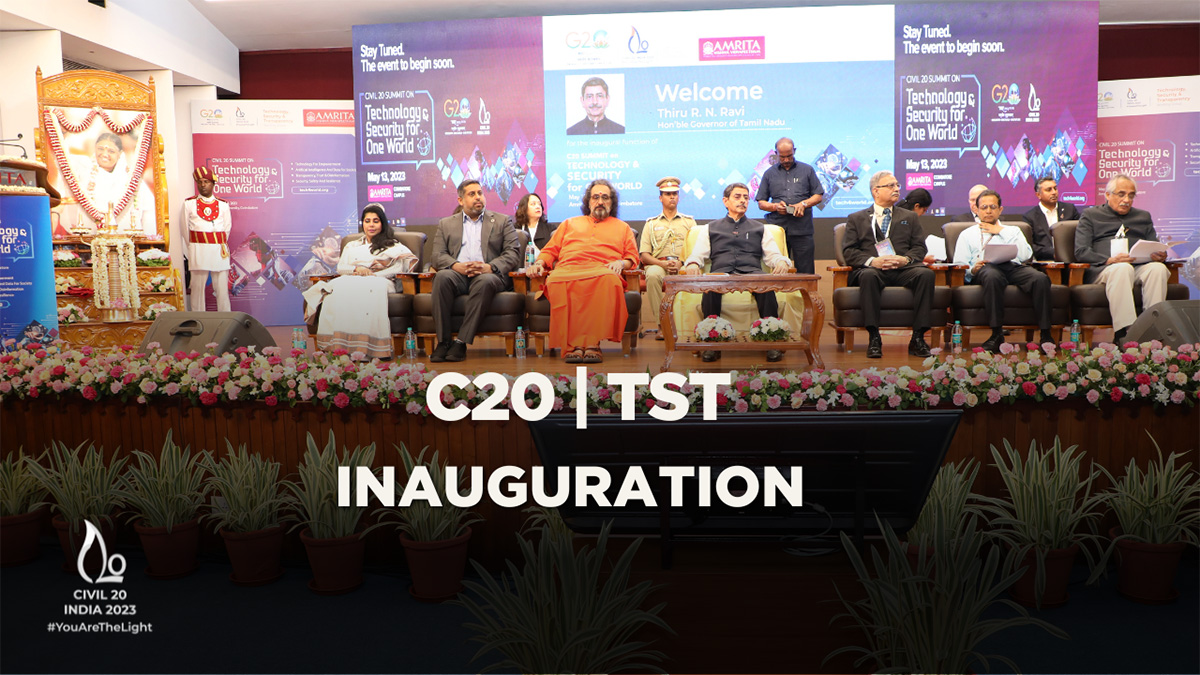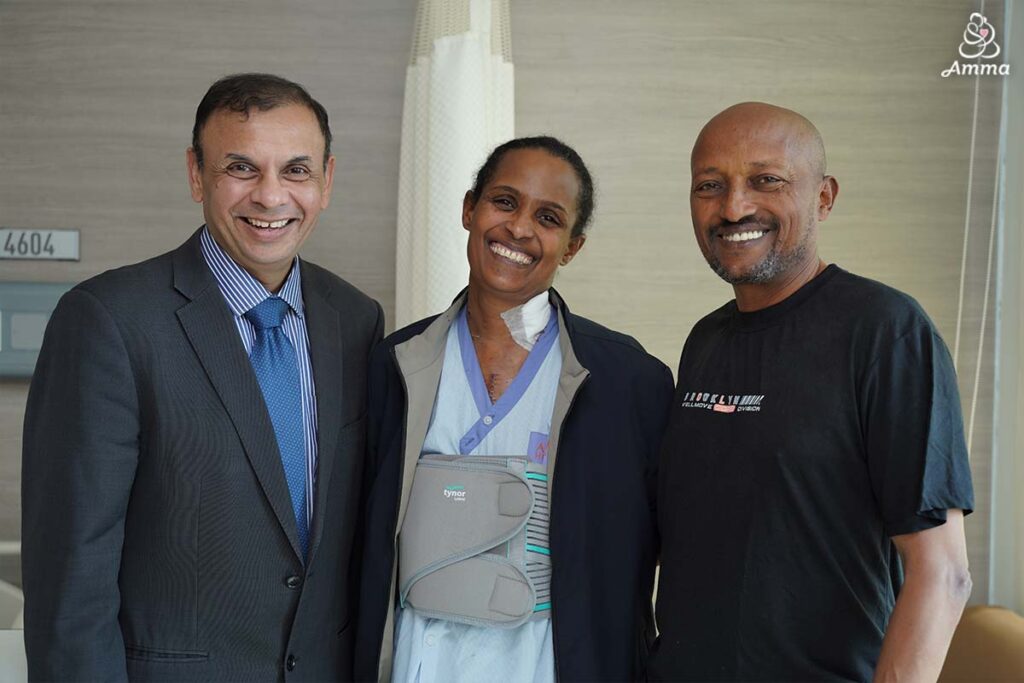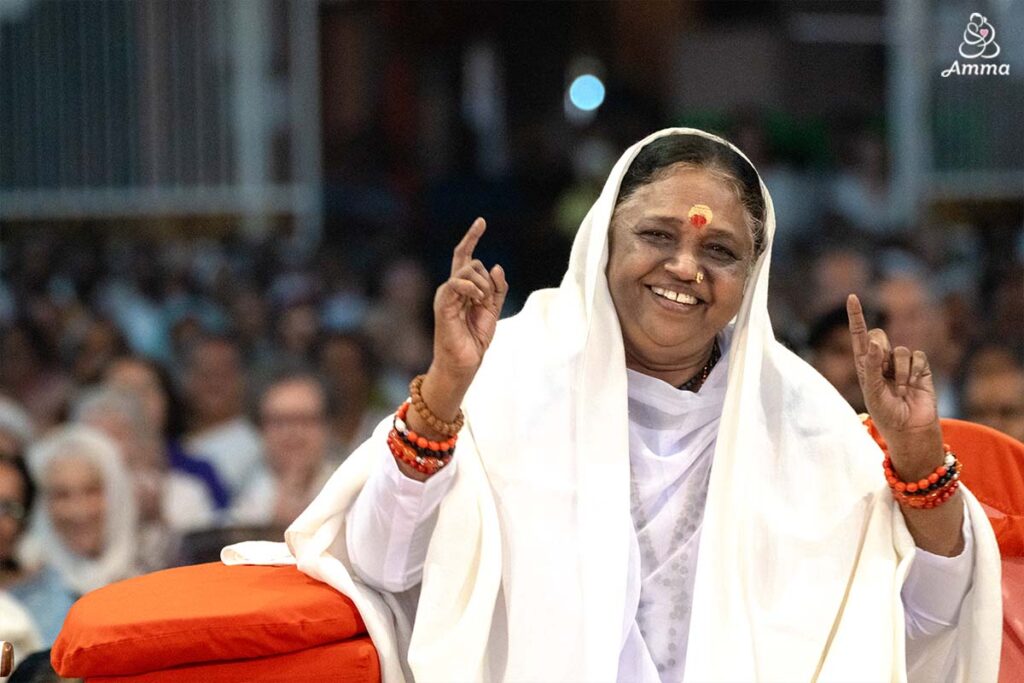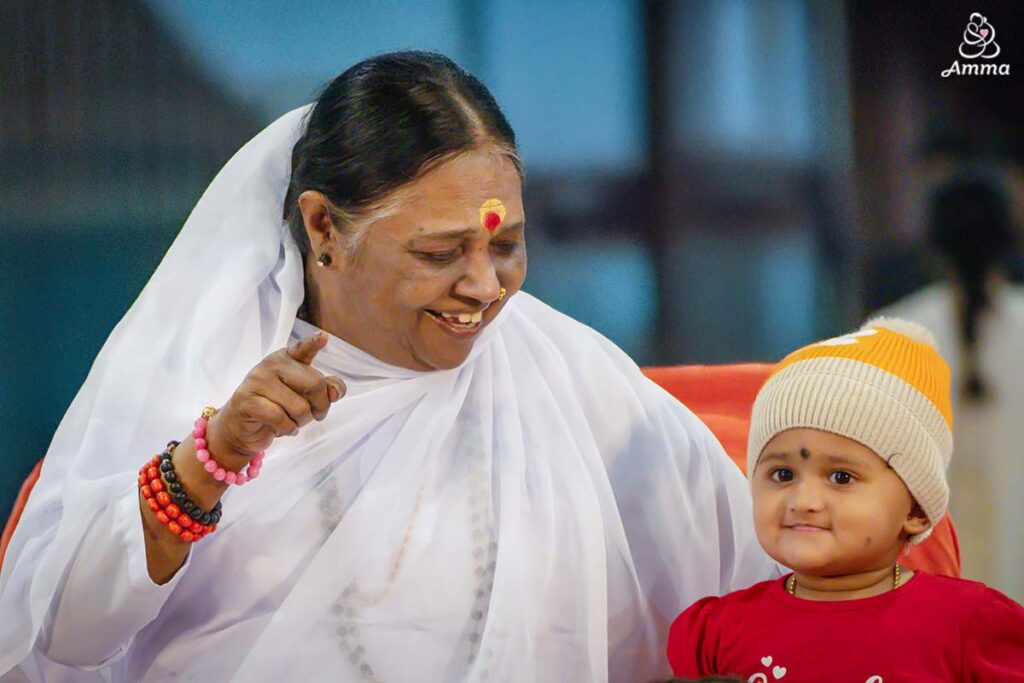Instead of technology raising alarming concerns about the future of humankind, it can be used to gather and share the talents of all people. This can bring transformational changes to India as a nation, and Civil 20 is a channel to bring these unique success stories to the entire world.
The Civil 20 (C20) Summit on Technology and Security for One World is taking place at Amrita Vishwa Vidyapeetham, Coimbatore. Several dignitaries from India and abroad attended the inaugural ceremony of the two-day event hosted at the university by the official Working Group on Technology, Security & Transparency.
“Humanity is facing extraordinary challenges today, including on subtler levels, which we may be unable to perceive or understand. The huge leap in science and technology, along with misuse of the internet and increasing drug abuse among students, are contributing to the predicament we now face. The negative aspects of technology are raising alarming concerns about the future of humankind. Now we see a new generation growing up devoid of a conscience and moral values. As a result, violence, in various names and forms, is rising,” said Amma in her video address as Chair of C20.
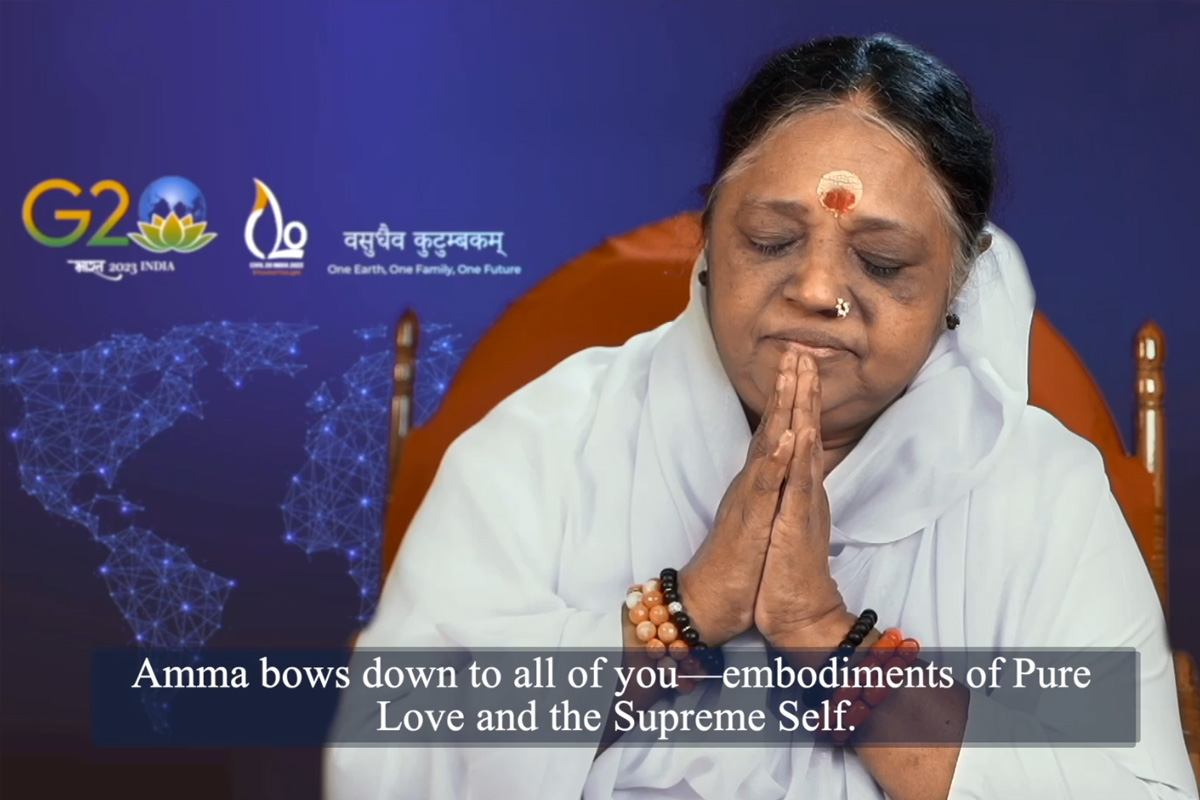
“All new discoveries usually come with a negative side. The once evident problems have now shifted from the gross to the subtle and, consequently, become stronger. Technology has increased conveniences and made life comfortable, but its abuse and dangers have also increased. Extensive research on the negative impact of any new invention or discovery is essential before it is deployed to the population at large, as these can also mean unique, new hazards.
“We need to find solutions to their potential negative repercussions and threats that could manifest. While we are in a hurry to connect to science, technology and the internet, we have become disconnected from many things—our true self, our atma, our environment, nature, love, and life. And this disconnected us from spiritual values, which can heal all the disconnections in our life.”
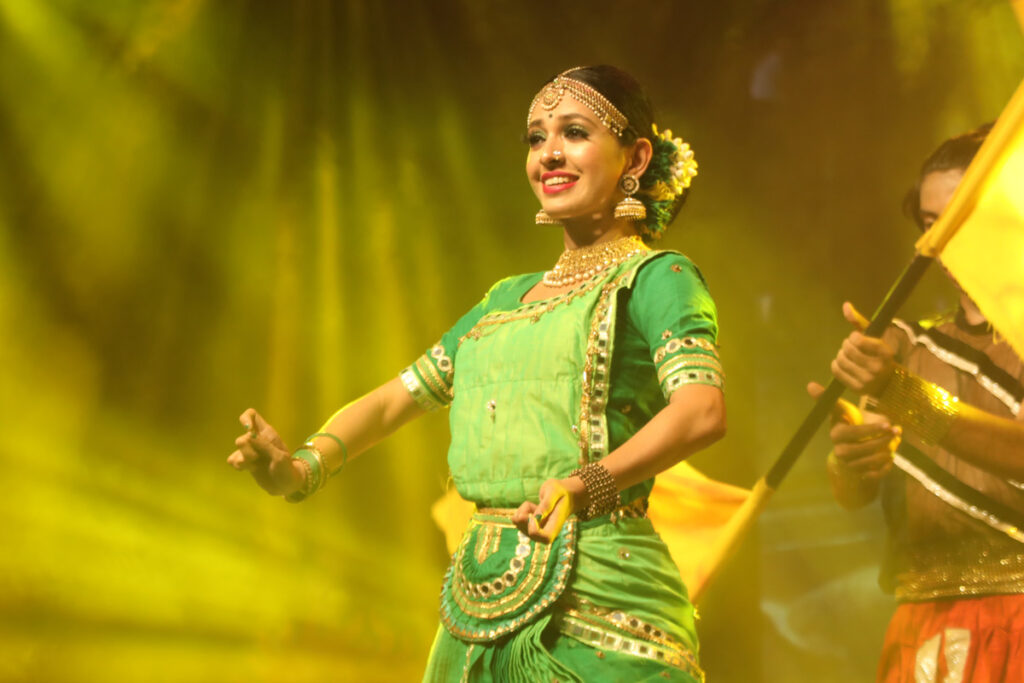
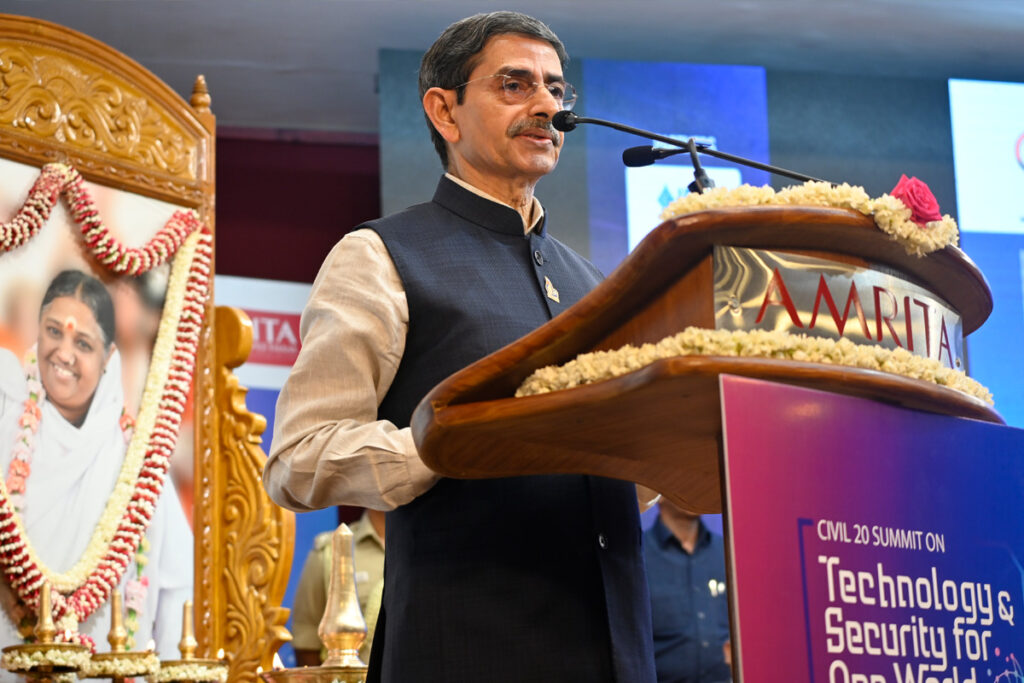
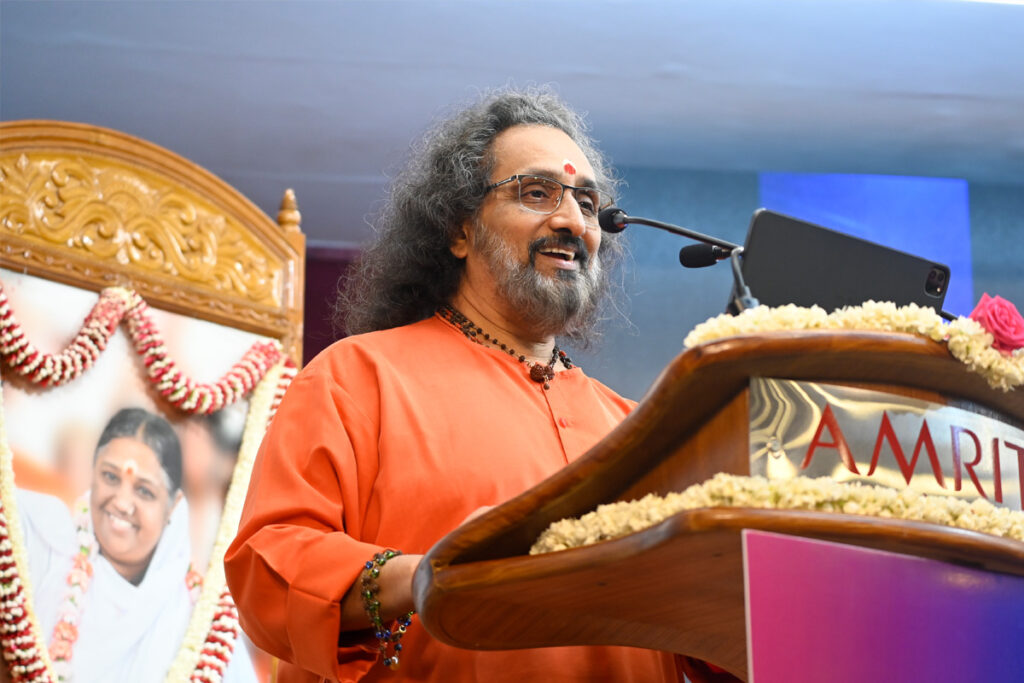
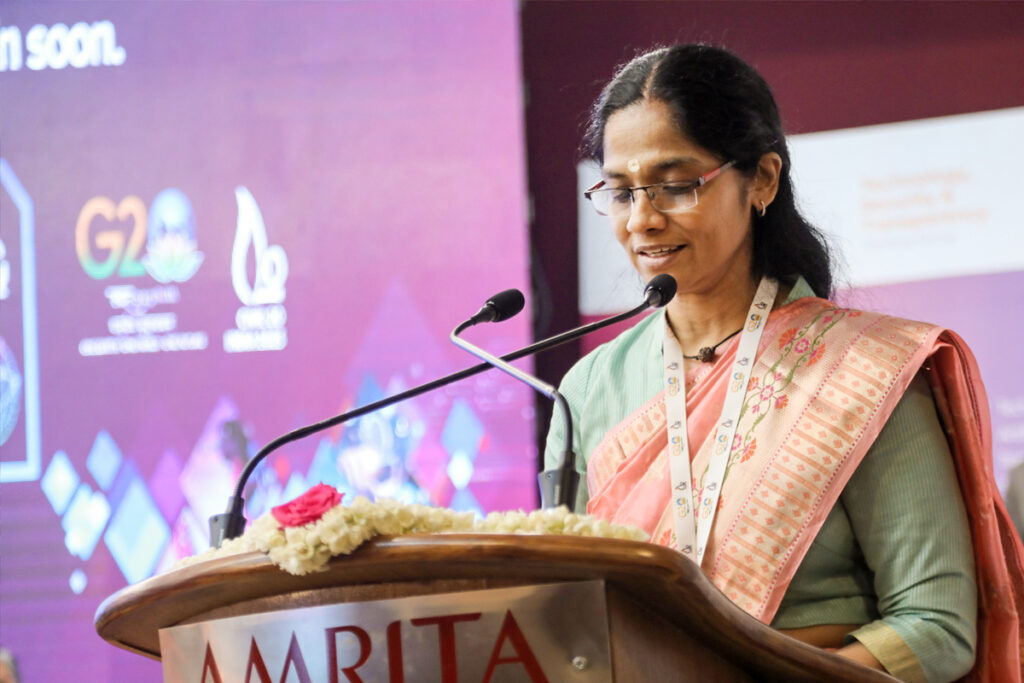
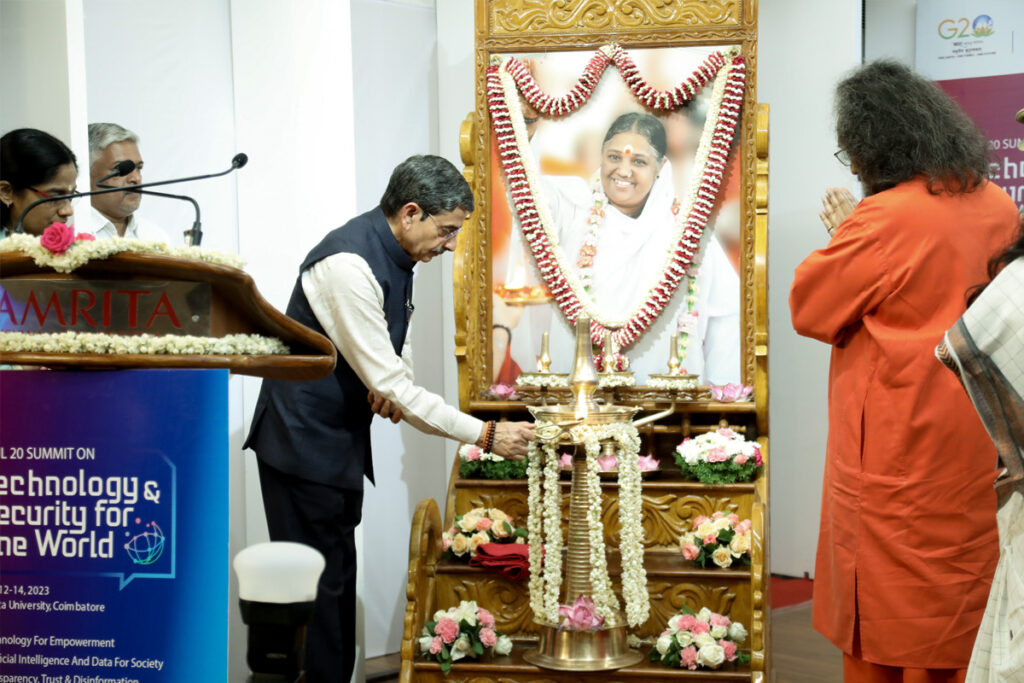
Hon’ble Governor of Tamil Nadu, Shri RN Ravi, addressed the delegates: “India is hosting the Presidency of G20. This is a unique opportunity for the country to offer policy recommendations rooted in its larger divine mandate. Millennia ago, our sages discovered the divine truth of oneness of all creation and that there was no difference between the creator and the created. There cannot be a more powerful way of resolving the world’s differences than accepting diversity as variations of the same universal truth. We need to take this quintessential India experience of oneness of all humanity to the entire world.
“An evolutionary transformation is happening in India today, with the world looking at us with hope. This has been possible by moving from the Government-centric approach of the last seven decades to a people-centric approach now. Our successes have been made possible by the use of technology through initiatives like the Jan Dhan Yojana, Digital India, the JAM trinity and the UPI.
“Such technology has impacted millions of lives in India by helping deliver services online. It also helped us navigate the pandemic better than many other countries, with 800 million people getting food at their doorsteps. Today, our progress is immense. Every government scheme now involves the people in a mass campaign, leading to impressive outcomes.”
He also expressed: “No country can make progress without harnessing the power of women. We had a huge gender imbalance in India for many centuries. Due to efforts of the last several years, the trends show that we may have finally overcome the challenge, and India may for the first time be having more women than men. In Tamil Nadu itself, the latest revision of electoral rolls show that the state today has 15,000 more women electorate than men.
“This transformation has been made possible with the use of technology and involving the civil society in policy-making as equal partners. Technology has a huge contribution in triggering innovation. In 2014, India had less than 500 startups. Today, we have more than 100,000. Harnessing the talent of people through technology is bringing transformational changes to the country. We now have a powerful opportunity through C20 to take these unique success stories of India to the international community to make the world a better place.”
As Troika Member C20, Swami Amritaswarupananda Puri said in his address: “Science and technology are extremely beneficial but can also be fatally dangerous, depending on how they are utilised. They can pose a threat to humanity when handled by people lacking in understanding, compassion, and discernment. What role tradition played in the past in human evolution has now been taken over by technology.
“The question is: ‘Do we have a clear direction about the future, or are we clueless?’ Communicating with others today doesn’t involve the human element as there is no need for face-to-face interactions. Even emotions have been turned into symbols through emojis. Technology does not always present positive influences, as it provides more distraction than focus.”
Swamiji explained: “Generative AI can be a powerful tool of misinformation and be risky to humanity. Spirituality and the Internet are two distinct niches for human pursuit of knowledge and wisdom. Today’s social media and content platforms are gamechangers, even for new spiritual aspirants who seek a connection to the perceived values in early stages of their journey.
“While technology has advanced our understanding of the world, it struggles to understand inherent biases like racism, or explain logical reasoning or mathematical concepts. Technology and Chat GPT are exciting, but one can’t tell when they are wrong unless one knows the answer already. This is where technology and spirituality differ in influencing humanity’s development.”
Some other prominent names present on the dais included Lt. General Dr. Rajesh Pant, National Cyber Security Coordinator, Prime Minister’s Office, India; Vijay Nambiar, Sherpa C20 and Former UN Secretary General’s Special Advisor; Bharati Ghosh, National Spokesperson of BJP & Member of National Executive Committee of BJP; Dr. Venkat Rangan, Vice Chancellor, Amrita Vishwa Vidyapeetham; and Dr. Krishnashree Achuthan, National Coordinator of C20 Summit on Technology, Security & Transparency and Dean of Post Graduate Programs, Amrita Vishwa Vidyapeetham.
Also present at the inaugural event were Vilas Dhar, President & Trustee of Patrick J. McGovern Foundation; Micha Weis, Strategic financial cyber-leader and advisor for the Israeli Ministry of Finance; Marcele Frossard, Policy advisor for the National Campaign for the Right to Education, Brazil; Matthew Chetty, Impact Area Manager, e-Government, at Council for Scientific and Industrial Research (CSIR), South Africa; and Alison Richards, International Advisory Council and Director Intel Corporation. Virtual participation included Sonya Kilkenny, Member of Parliament, Victorian Government, Australia; and Ah Mafuthan, Troika member C20, Indonesia.
Across two days, hundreds of delegates from Civil Society Organisations (CSOs) and the technology landscape are participating in policy meetings, discussions, and workshops. They would formulate policies on the access and use of technology, enhanced security, and improved transparency for advancing societal wellbeing.
The sessions are focusing on four key areas, namely, Technology for Empowerment; Artificial Intelligence and Data for Society; Transparency, Trust & Disinformation; and Security, Safety and Resilience. The participants would identify the gaps in these areas and brainstorm innovative solutions which will directly impact the policy recommendations to be launched at the C20 Summit in July 2023.


